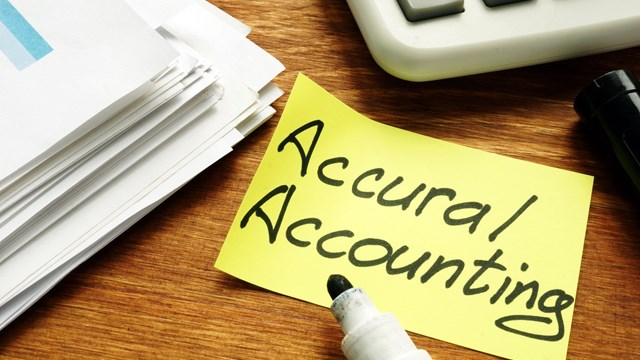Management of a condominium community is much like democratic government in a small town or village. The budget process is remarkably similar, whether it’s fees or taxes being collected, and, as in local government, financial management is a transparent system based on “GAAP” (generally accepted accounting principles).
For both towns and private communities, financial stability is essential to the shared goal of all residents – that goal being short- and long-term maintenance of commonly-owned buildings, grounds and infrastructures. And just as town residents must vote on how their taxes are spent, condo owners have control over managementof their pooled finances.
How involved in the budget process do directors or officers need to be, andhow much do they need in the way of financial knowledge?
Helping the CPA
Mark Love, CPA, a principal in the Worcester, Massachusetts-based accounting firm Love, Jarominski & Raymond, LLP, says, “They [board members and trustees] take their role seriously and they are very prepared. We’re finding that boards are [becoming] very strong – the members are notafraid to ask questions. This may be because [so many] condo buyers now have had previous experience with owning a home. These are the people who are scaling down,” he notes.
“The best-run condo associations are those that have good property managers… a strong manager really engages the board members. And it helps to have at least one volunteer (board) member with an acute understanding of finances,” says Love.
For small communities without paid staff, computing an association budget could be a challenge, but there are new choices in financial software aimed at the non-professional – and these tools are increasingly user-friendly. Most of the time, Love says, property managers choose the software for theirassociation’s financial management. “I’d say 90 percent of boards defer to their manager. Some will use software specifically designed for common-interest properties, but many just use QuickBooks, which is popular with small businesses.”
Start with Top Two Elements
“There are two major things every board member needs to look at: what’s our cash position and what does the reserve fund look like? Members need to see the operating budget as a management tool. Even those individuals who are not financial experts should provide input,” says Love, because the line items on financial statements oftenboil down to “quality of life issues.”
When working with an association, he adds, “The first thing we do is make sure the property manager is well-prepared. Then, we always get in front of the board, at a meeting, if asked. Wefind that about a third of the boards request a presentation from us.
“A homeowners or condo associationis basically run like a small business,” he continues. “As such, there should be some mechanism of oversight, at least annually.”
That oversight takes shape as an “attest service,” says Sondi Stanton, CPA and partner in Stanton, Schmiedel & Co. of Woburn, Massachusetts. Her firm assists about 40 community associations with “any of the three levels of attest service,” she notes, thesebeing a compilation, a review or an audit. A review, in many cases, “is required by statute in Massachusetts,” she adds, “although it’s in most condo docs as well.”
Although a full-fledged audit may be required by some associations’ documents, it’s not the only choice for most. A community’s board may choose the less-involved review or even simpler “financial statement compilation” to report its financial position.
With an audit – the most stringent type of review – an independent CPA researches accounting and financial documents and procedures to verify the accuracy of all information, then presents an opinion regarding fairness of the financial statements, along withassurance that data has been tested.
For many associations, an audit may not be necessary and a review will be sufficient, although it provides a lesser degree of assurance. A CPA conducting a review would still ask questions and analyze data collected from clients’ records, but skip the extra step of observing procedures, such as checking inventory and watching howit is counted.
The very simplest type of assessment, the compilation, is considered an unaudited statement. With this type, the CPA provides assistance in the preparation of financial reports, making sure correct formats are in place, accounting principles are followed and numbers are accurate, but he or she is not responsible for verifying the information.
Will a Review Do?
Why is an annual review or audit necessary? An association conducts transactions with vendors, tradesmen, banks that provide loans, leasing companies and suppliers that sell on credit. An assessment enhances the association’s credibility and attests to its financial reliability. “Banks and lenders will look at previous financial reports and reviews – which should be done every year,” notes Love. All of these business partners expect to see external CPAs overseeing the financial reporting process. Plus, government regulations, including tax issues, must be considered. Love also points out the Massachusetts statute, “which requires [at least] a review… if you have50 or more units” in your association. “It’s good business practice,” he says, adding, “an audit may not be necessary with a good review… 95 percent of the time a review accomplishes everything that’s needed. Everyone should have [at least] a review.”
When it comes to the daily routine of accounts receivable and accounts payable, Love believes, “Individual board members should not need to getinvolved if they have a good property manager or somebody good on the board.”
Time to Check the Budget
Monthly, bi-monthly or quarterly board meetings provide the venue for most associations to review the operating budget and make decisions. If an association uses a management company, their staff would typically provide the necessary financial information for the board to review each month. The list of items at the meeting might include: a balance sheet; outstanding, ongoing financial issues [to keep directors aware of projects on the table]; current total cash and investment balances; a projection of accounts receivable – this should indicate if funds are sufficient to maintain the budget; any outstanding bills with their due date as well as future significant commitments; payables, as listed in the check register, which documents all checks issued as well as their purpose; and, an income statement for the month and for the year to date – with a comparison to your budget – along with an explanation of any significant variations from the budget.
Boards may also need to discuss reserves, ordinary maintenance, deferredmaintenance and anticipated replacement costs.
Just like an annual town meeting, an association’s annual meeting may need a quorum of the board and general membership – unit owners – in attendance. This gathering, states Stanton, “looks at the prior year’s financial statements and the upcoming budget.” The annual budget is consequently presented in two distinct sections, the current review of operating expenses and the future plan of capital reserves. She finds most attendees are well-prepared, since “in most cases, financials are distributed ahead of time, and people often appear with questions. Board members have had the financials all year long and should be able to answer these questions.” Plus, the CPA or manager generally gives a presentation to explain and clarify the financials.
Love suggests that key items in the presentation should include an accounting review report, the cash position and the related investment position – with an eye on better returns. He says the reserve fund needs scrutiny, “to make sure it can meet both long-term and emergency needs.” And, he adds, “A reserve fund is a standard requirement in most states.”
Love recommends “allowing plenty of time for preparation – about three months” leading up to the annual meeting. Boards may decide to prepare a “zero-based budget” which considers the need for every line-item from scratch [zero dollars] or use the “historical trend” method, which uses line items from a past budget as a template, or starting point.
Even with dedicated trustees, some associations still find themselves in financial trouble, reports Stanton, “when board members don’t want to raise fees [because] it’s not popular, and there may be a concern about keeping unit owners happy. If this [inaction] compounds over a year or more, then income is not sufficient to pay bills and eventually… [the] property is not maintained.”
When this happens, people react. “I’ve been to a few very heated annual meetings,” she continues, “I’ve seen situations where unit owners organize and oust the board …and start all over, with new management or advisors.”
This sort of failure is unusual, she says. “Most of the boards we deal with,” Stanton adds, “have people who are pretty knowledgeable. They take these positions seriously… They’ll go to a condo expo or attend classes. They realize how important their role is.”
Vacancies Impact Cash Flow
Even the best planning or the most careful audits cannot rescue a community when underlying structures topple – such as when developers fail or unit owners default. The nation’s real estate downturn left many condo developments half-built, or with unsold units. “The condo association suffers when units are vacant,” Love states, “since cash flow is impacted. We have been involved in transactions where the developer or contractor has turned the project over to the unit owners” before completing the project.
Other unforeseen situations may include an emergency, such as flooding, where a loan is needed, and a special assessment is applied. “No one likes a special assessment,” he continues, “but you can’t always plan for this kind of thing. It’s an art… to balance the reserve fund.” Luckily, he adds, “Banks have been very friendly to homeowner and condo associations. There’s enough collateral [with community properties] and [lenders] have been very accommodating.”
Well-managed properties, says Stanton, “stay in good shape, financially and otherwise, with a mix that includes capital plans and reserve studies, special assessments when needed… all are factors in maintaininga reasonable budget.”
Marie N. Auger is a freelance writer and a frequent contributor to New England Condominium magazine.







4 Comments
Leave a Comment